NutraBio is well-known for being a sports performance brand, and they've built quite the reputation since starting in 1996. Mark Glazier, CEO of NutraBio, has never sacrificed quality for cost and it shows in every product they release. But Mark wants NutraBio to be more than just a sports performance brand, because he knows the importance of overall health and longevity.
Although they may not get all the glory, NutraBio already has a large selection of supplements geared towards health and wellness, such as Multi-Sport, Immune, Curcumin Advanced, and several single ingredient vitamins, minerals, and herbs.
NutraBio Wellness Line: Health supplements are paramount
We can confidently say that NutraBio is way more than just a sports performance brand, and their quality is unmatched. These health and wellness products just don't get as much hype as their Classic Whey, Alpha EAA, or the NutraBio Pre Workout, but they deserve to get recognized because poor health is almost always tied to subpar performance, regardless of what exercise modality you chose to participate in. Thus, NutraBio is creating a new series called the wellness line, which is dedicated to creating superior health and wellness products.
"Wellness is a line of premium health optimizing products. Each formula will support a specific purpose such as Immune & Lungs. Each will have efficacious doses of premium ingredients and of course, in the NutraBio way, they will be fully disclosed formulas with 3rd party testing available to the public. We do not use fillers or excipients in our products, just pure active ingredients. Look out for more products to be added to our Wellness line coming soon."
-Eric Schwartz, VP of Marketing, NutraBio
Lungs From NutraBio: Breathe Easier, Perform Better
The first product in the Wellness series was none other than Immune, NutraBio's potent immune system support supplement. But the next addition to the Wellness series is something that's not commonly seen in the industry at all.
We're excited to announce that the team has launched NutraBio Lungs, a capsule-based respiratory support supplement with seven ingredients. This is definitely a unique product, with a unique formula to match. We argue that the respiratory system is one of the most important components for optimal exercise performance - but too often goes neglected.
Whether you're lifting weights, running a 5k, going for a walk, or biking, you need to get an adequate amount of oxygen to the working muscles. And if something is affecting your ability to do that, then your performance will quickly decline.
In this post, we're going to cover everything Lungs has to offer, and explain why you should consider adding it into your supplement regimen. It may not be for everyone, but there's a large group of people that can benefit from it. NutraBio is just getting started, so make sure to sign up for their news and deals alerts to keep up!
NutraBio Lungs – Deals and Price Drop Alerts
Get Price Alerts
No spam, no scams.
Disclosure: PricePlow relies on pricing from stores with which we have a business relationship. We work hard to keep pricing current, but you may find a better offer.
Posts are sponsored in part by the retailers and/or brands listed on this page.
NutraBio Lungs Ingredient Breakdown
NutraBio Lungs has a serving size of three capsules per day, so one bottle will last you a full 30 days. The most interesting ingredient of this unique formula has to be Immuno LP-20.
We've seen some of the other ingredients in other supplements, but never in this combination or specifically designed for lung and respiratory support.
Lungs could be a game changer for various individuals who don't have optimal respiratory function. But no matter what, it's benefits go beyond health, since getting enough oxygen is also crucial for exercise and health.
Lungs' supplement facts panel is divided into two main categories, First Level Respiratory Support and Botanical Respiratory Support. Let's see what one serving (three capsules) of Lungs has to offer!
First Level Respiratory Support (1,176mg)
-
N-Acetyl Cysteine (NAC) (HPLC) - 600mg
NutraBio uses 600mg of N-Acetyl Cysteine (NAC) to kick things off. The HPLC stands for high-performance liquid chromatography, which just represents the type of processing used.
You may have heard of the semi essential sulfur containing amino acid cysteine, which is mainly found in animal based products, such as yogurt, eggs, chicken, and turkey.[1] Although NAC itself is not found in any foods, it's a supplemental form of cysteine.
Learn more about NutraBio NAC on the PricePlow blog!
Once ingested, NAC can serve as a direct precursor to L-cysteine synthesis, which results in greater glutathione production.[1] Glutathione is a potent antioxidant, and helps protect your cells from oxidative stress. Research shows that glutathione can decrease cellular damage, boost the immune system, and may even increase longevity.[2,3]
NAC is also known for being a mucolytic compound since it can reduce the amount of excessive mucus production.[1] This is a key role in helping your lungs and respiratory system function optimally -- although mucus is important, too much can lead to congestion. A systematic review published in 2017 stated that NAC is widely used for the treatment of chronic bronchitis, which is characterized by a persistent productive cough lasting longer than three months. NAC supplementation was found to reduce the frequency of episodes and improve subjects' symptoms.[1]
And because NAC is a powerful antioxidant, it's also been shown to help with asthma, by reducing airway hyperresponsiveness that leads to shortness of breath. [1] Furthermore, NAC is able to amplify the activity of a phase two enzyme that detoxifies the body and protects cells known as glutathione S-transferase.[1]
We could write a very long post about the benefits of NAC alone, but to keep things short, just know it's an incredible ingredient.
-
Quercetin (HPLC) (quercetin anhydrous 95%, 526mg) - 500mg
The next ingredient included in Lungs is quercetin. It's standardized to contain at minimum 95% quercetin anhydrous, meaning that out of a 526mg dose, you're getting 500mg of the active ingredient.
Quercetin is classified as a polyphenol and flavonoid that's present in several foods, such as apples, berries, red wine, tea, and onions.[4] Studies show that quercetin's pharmacological properties include antiviral, anti-inflammatory, anti-carcinogenic anti-allergenic, and it also seems to reduce platelet aggregation, lipid peroxidation, and capillary permeability.[4,5]
Several studies support its use as an anti-inflammatory and immune-boosting agent,[4] however for Lungs, we're going to focus on its anti-allergenic properties! A study published in 2016 found that quercetin is capable of preventing histamine release, decreasing pro-inflammatory cytokines, leukotrienes synthesis, and suppressing interleukin IL-4 production.[5] Due to these properties, quercetin may be an effective treatment for various respiratory conditions, such as allergic rhinitis, asthma, and allergic reactions.[5]
For several of these ingredients, expect to get both immune boosting effects, as well as increased lung/respiratory support, since they are both closely connected!
Now for the main event: Immuno LP-20, an ingredient that we have yet to cover on the PricePlow blog!
-
Immuno LP-20 (heat-killed lactobacillus plantarum strain L-137) - 50mg
Immuno LP-20 is a trademarked form of heat-killed lactobacillus plantarum L-137. L-137 represents the specific type of bacterial strain used to create this ingredient. In general, lactobacilli are probiotics naturally present within your digestive system and play a key role in overall health by contributing to immune system function, protecting against infections, decreasing cholesterol levels, and also possess anticarcinogenic properties.[6]
Lactobacillus plantarum (L-137) is a specific strain derived from fermented foods that's been shown to have immune-boosting properties, as well as anti-allergenic and anti-tumoral effects[6]. Research shows that L-137 is able to enhance the activity of various immune cells, such as T-helper cells,[6] which heavily contribute to its beneficial effects.
Furthermore, L-137 may also help protect against common cold infections, including influenza A, because it's able to increase the synthesis of human type 1 interferons (IFN).[7] Interferons are a type of protein that play a crucial role in regulating the immune system.
A study published in 2013 found that daily oral supplementation of L-137 resulted in a significant decrease in severity, duration, and frequency of symptoms in patients with upper respiratory tract infections (URTI).[6] Another study from 2019 found that daily supplementation of L-137 led to profound improvements in inflammation and lipid metabolism in overweight subjects.[8]
Lastly, another study conducted in 2017 showed that L-137 may be an effective for the treatment and prevention of food allergies, since it's a potent inducer of interleukin-12.[9] IL-12 is a chemical signal sent from dendritic cells (a specialized cell involved in the immune system), that's capable of suppressing immunoglobulin E (IgE) production.[9] IgE are antibodies that get secreted when an allergen enters the body, and they're what cause the symptoms of an allergic reaction, such as itching, redness, swelling, and congestion.
Immuno LP-20 is a really unique ingredient with plenty of research available supporting its use. Based on the studies we've seen so far, 50mg is a great dose for maximum benefits.
Next we move on to the second major component of Lungs, the botanical respiratory support matrix.
Botanical Respiratory Support (800mg)
-
Thyme Extract (aerial) - 300mg
It turns out that thyme is not just a herb that's useful for spicing up your food, it also packs several health benefits!
NutraBio has been helping thousands of first responders by donating supplements, face masks, protein powder, and hand sanitizer during some difficult times!
Thyme, also referred to as thymus vulgaris, has been traditionally used for medicinal purposes, since it expresses antitussive, expectorant, mucolytic, anti-inflammatory, and antispasmodic properties.[10] Research shows that thyme extract may be an effective treatment for several chronic respiratory conditions because it's able to reduce excessive mucus production and the release of pro-inflammatory cytokines.[10]
Thyme is also known as being a natural cough remedy and several studies show that when it's combined with ivy, there seems to be an even greater effect.[11] A study published in 2006 found that when subjects with acute bronchitis and a productive cough were given a combination of thyme and ivy, it significantly decreased the severity and duration of their symptoms.[11]
You're probably wondering why we're discussing ivy when talking about thyme? That's because both of the powerful duo are included in Lungs!
-
Boswellia Extract (Boswellia serrata) (resin) (standardized to 65% boswellic acids, 130mg) - 200mg
Boswellia extract, also called boswellia serrata, is a tree that's native to India, Africa, and the Middle East.[12] NutraBio specifies that they are using the resin portion of boswellia, which is extracted from the tree's trunk. They further note that the resin is standardized to contain at least 65% boswellic acids. Therefore, out of a 200mg dose, you're getting 130mg of the main bioactive component.
The resin extracts from boswellia serrata are commonly used to treat chronic inflammatory diseases.[12] Research shows that since the resin extract is rich in several bioactive compounds, such as pentacyclic triterpenic acids (also called boswellic acids), monoterpenes, diterpenes, triterpenes, and tetracyclic triterpenic acids, they result in the inhibition of pro-inflammatory enzymes within the body.[12]
In regards to respiratory conditions, boswellic acids seem to be the main beneficial compound you should be after. Preliminary studies show that boswellic acids are capable of reducing the secretion of multiple enzymes that result in chemotaxis, bronchoconstriction, and enhanced vascular permeability.[12-15] In addition to that, research also suggests that boswellic acids can reduce mucus production that's often associated with various respiratory conditions through the inhibition of human leukocyte elastase.[12]
Yet again, this is another powerful ingredient and Lungs is shaping up to be quite the formula! And we still have two more ingredients to go, so let's see what else it has to offer!
-
Ivy Extract (leaf) - 200mg
We already discussed the synergy between thyme and ivy leaf extract, but it's also very beneficial on its own. The literature on ivy leaf's ability to treat a wide variety of respiratory conditions is well established.[16-18]
A local firefighter crew from New Jersey stopped by NutraBio headquarters to thank them for their donations!
Ivy leaf, also known as hedera helix, is rich in two main bioactive compounds: flavonoids and triterpenoid saponins, which are attributed to its antimicrobial, antiviral, anti-inflammatory, antiarthritic, antioxidant, and antispasmodic properties. Several studies support ivy's use for the treatment of bronchitis, since it has been shown to significantly reduce airway restriction.[16-18]
Ivy leaf supplementation can also help decrease the following symptoms: rhinitis (runny nose), cough, and mucus production.[19] It's proposed that since thyme is able to decrease the viscosity of the mucus and relax the airways, while ivy leaf serves as an expectorant, it may help you clear mucus much more efficiently.[11] This is a great combination to get rid of a cough and breathe easier by clearing out the airways.
-
Coleus Forskohlii Extract (standardized to 10% forskolin) (root) - 100mg
The last ingredient Lungs has to offer is coleus forskohlii extract, standardized to contain a minimum of 10% forskolin.
Coleus, also known as Indian coleus is a plant closely related to mint, and its main bioactive constituent is forskolin. Coleus is very popular in traditional Ayurvedic medicine, and it has a long history of being used to treat multiple medical conditions including pain, convulsions, and even heart disease.[20]
The man, the myth, the legend... Mark Glazier has been putting in some serious hours to help as many people as possible with the First Response Initiative.
Although, more research is needed to tease out its main mechanism of action, coleus is known for activating adenylate cyclase (AC) within cells, which then leads to the stimulation of a secondary messaging system, called cAMP (cyclic adenosine monophosphate).[21,22]
Enhanced cAMP activity results in a host of health benefits, such as increased fatty acid oxidation, improved body composition, elevated testosterone levels, enhanced lean body mass, and an boost in basal metabolic rate.[23,24] This is why you'll commonly see coleus included in fat burners, but it also has beneficial effects for respiratory conditions, most notably asthma.[25]
IN a 2006 landmark study, researchers recruited 40 patients with mild-to-moderate persistent asthma and instructed them to take either 10mg of forskolin or three inhalations of sodium cromoglycate per day.[25] The results showed that the participants taking the forskolin had significantly less asthma attacks than the other group.[25]
The researchers proposed that these positive effects were due to forskolin's ability to increase cAMP levels within the bronchial smooth muscle, resulting in bronchodilation (opening of the airway). They also noted that forskolin possessed anti-inflammatory and antioxidant properties, which also help reduce the severity of symptoms associated with asthma.[25]
Turns out that coleus forskolin is a great ingredient to round out the formula!
Respiratory support goes ignored no more
NutraBio Lungs is one of the most unique formulas they've put together, and that's saying a lot. We're excited to see that the brand is looking for gaps to fill and needs to solve in the industry, and this one can be incredibly helpful for a wide variety of people. At the end of the day, NutraBio wants to help as many of their customers as possible, especially if it gets them back to training "without compromise". And one way of doing that is by providing a large selection of high quality products that actually help solve problems.
NutraBio Keeps Running Strong
NutraBio has been launching so many new supplements and flavors, it's hard to keep up at times. But what we appreciate most is that the company always ensures that the quality is unmatched before releasing any new products.
Last year, we saw NutraBio drastically expand their line of products, but they were mainly focused on releasing new flavors. Now, the brand has shifted some of its resources towards formulating supplements for health and wellness, and they have access to some of the highest quality and innovative ingredients on the market. And if you're wondering about these new herbal ingredients, then rest assured that NutraBio is still releasing third party lab-tests on all of its supplements!
Like we've said before, NutraBio is all about giving the consumer a product they will fully stand behind, and that means being able to source pure, safe, potent, and effective raw materials. So you can count on them for literally all of your supplement needs, from sports performance to health and wellness! In order to stay up to date with everything NutraBio has coming, make sure to subscribe down below, because PricePlow is your go-to source for all supplement industry news, deals, and reviews!
NutraBio Lungs – Deals and Price Drop Alerts
Get Price Alerts
No spam, no scams.
Disclosure: PricePlow relies on pricing from stores with which we have a business relationship. We work hard to keep pricing current, but you may find a better offer.
Posts are sponsored in part by the retailers and/or brands listed on this page.
 References
References
- Mokhtari V, et al; "A Review on Various Uses of N-Acetyl Cysteine"; Cell J. 2017;19(1):11–17; https://www.ncbi.nlm.nih.gov/pmc/articles/PMC5241507/
- Cascella, Roberta, et al; "S-Linolenoyl Glutathione Intake Extends Life-Span and Stress Resistance via Sir-2.1 Upregulation in Caenorhabditis Elegans."; Free Radical Biology & Medicine; U.S. National Library of Medicine; Aug. 2014; https://pubmed.ncbi.nlm.nih.gov/24835770
- Shackebaei, D, et al; "Mechanisms Underlying the Cardioprotective Effect of L-Cysteine."; Molecular and Cellular Biochemistry; U.S. National Library of Medicine; Sept. 2005; https://pubmed.ncbi.nlm.nih.gov/16132711
- Li Y, Yao J, Han C, et al. Quercetin, Inflammation and Immunity. Nutrients. 2016;8(3):167; https://www.ncbi.nlm.nih.gov/pmc/articles/PMC4808895/
- Mlcek J, et al; "Quercetin and Its Anti-Allergic Immune Response"; Molecules. 2016;21(5):623; https://www.ncbi.nlm.nih.gov/pmc/articles/PMC6273625/
- Hirose Y, et al; "Oral intake of heat-killed Lactobacillus plantarum L-137 decreases the incidence of upper respiratory tract infection in healthy subjects with high levels of psychological stress"; J Nutr Sci. 2013;2:e39; https://www.ncbi.nlm.nih.gov/pmc/articles/PMC4153334/
- Arimori Y, et al; :Daily intake of heat-killed Lactobacillus plantarum L-137 enhances type I interferon production in healthy humans and pigs"; Immunopharmacol Immunotoxicol. 2012 Dec;34(6):937-43; https://pubmed.ncbi.nlm.nih.gov/22468623/
- Tanaka Y. et al; "Daily intake of heat-killed Lactobacillus plantarum L-137 improves inflammation and lipid metabolism in overweight healthy adults: a randomized-controlled trial"; Eur J Nutr. 2019 Oct 16; https://pubmed.ncbi.nlm.nih.gov/31620886
- Murosaki S. et al; "Heat-killed Lactobacillus plantarum L-137 suppresses naturally fed antigen-specific IgE production by stimulation of IL-12 production in mice"; J Allergy Clin Immunol. 1998 Jul;102(1):57-64; https://pubmed.ncbi.nlm.nih.gov/9679848/
- Oliviero M. et al; "Evaluations of thyme extract effects in human normal bronchial and tracheal epithelial cell lines and in human lung cancer cell line"; Chem Biol Interact. 2016 Aug 25;256:125-33; https://pubmed.ncbi.nlm.nih.gov/27369807
- Kemmerich B et al; "Efficacy and tolerability of a fluid extract combination of thyme herb and ivy leaves and matched placebo in adults suffering from acute bronchitis with productive cough. A prospective, double-blind, placebo-controlled clinical trial"; Arzneimittelforschung. 2006;56(9):652-60; https://pubmed.ncbi.nlm.nih.gov/17063641
- Siddiqui MZ. "Boswellia serrata, a potential antiinflammatory agent: an overview"; Indian J Pharm Sci. 2011;73(3):255–261; https://www.ncbi.nlm.nih.gov/pmc/articles/PMC3309643/
- Wildfeuer A, et al; "Effects of boswellic acids extracted from a herbal medicine on the biosynthesis of leukotrienes and the course of experimental autoimmune encephalomyelitis" Arzneim Forsch. 1998;48:668–74; https://pubmed.ncbi.nlm.nih.gov/9689425
- Ammon HP. "Boswellic acids (components of frankincense) as the active principle in treatment of chronic inflammatory diseases"; Wien Med Wochenschr. 2002;152:337–78; https://pubmed.ncbi.nlm.nih.gov/12244881
- Ammon HP. "Boswellic acids in chronic inflammatory diseases";Planta Med. 2006;72:1100–16; https://pubmed.ncbi.nlm.nih.gov/17024588
- Hoffman D. et al; "Efficacy of dry extract of ivy leaves in children with bronchial asthma--a review of randomized controlled trials"; Phytomedicine. 2003 Mar;10(2-3):213-20; https://pubmed.ncbi.nlm.nih.gov/12725580
- Lang C. et al; "A Valuable Option for the Treatment of Respiratory Diseases: Review on the Clinical Evidence of the Ivy Leaves Dry Extract EA 575"; Planta Med. 2015 Aug;81(12-13):968-74; https://pubmed.ncbi.nlm.nih.gov/25875509
- Schönknecht K. et al; "Efficacy of dry extract of ivy leaves in the treatment of productive cough"; Wiad Lek. 2017;70(6 pt 1):1026-1033; https://pubmed.ncbi.nlm.nih.gov/29478973
- Schmidt M. et al; "Suitability of Ivy Extract for the Treatment of Paediatric Cough"; Phytother Res. 2012 Dec;26(12):1942-7; https://pubmed.ncbi.nlm.nih.gov/22532491
- Dubey, MP. et al; "Pharmacological studies on coleonol, a hypotensive diterpene from Coleus forskohlii"; Journal of ethnopharmacology; 1981; 3(1), 1-13; https://pubmed.ncbi.nlm.nih.gov/7193263
- Litosch, I. et al; "Forskolin as an activator of cyclic AMP accumulation and lipolysis in rat adipocytes"; Molecular pharmacology; 1982; 22(1), 109-115; https://pubmed.ncbi.nlm.nih.gov/6289066
- Burns, TW et al; "Comparative effects of forskolin and isoproterenol on the cyclic AMP content of human adipocytes"; Life sciences; 1987; 40(2), 145-154; https://pubmed.ncbi.nlm.nih.gov/3025542
- Godard MP, et al; "Body composition and hormonal adaptations associated with forskolin consumption in overweight and obese men"; Obes Res; 2005; 13(8):1335-43; https://pubmed.ncbi.nlm.nih.gov/16129715
- Srivasta SK, et al; "Pharmacognostic evaluation of coleus forskohlii"; Pharmaceutical Biolog; 2002; 40, 129-134; https://www.tandfonline.com/doi/abs/10.1076/phbi.40.2.129.5842
- González-Sánchez R. et al; "Forskolin versus sodium cromoglycate for prevention of asthma attacks: a single-blinded clinical trial;" J Int Med Res. 2006 Mar-Apr;34(2):200-7; https://pubmed.ncbi.nlm.nih.gov/16749416
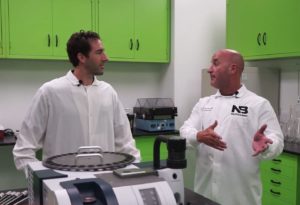
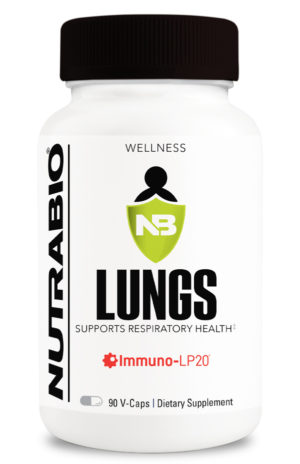
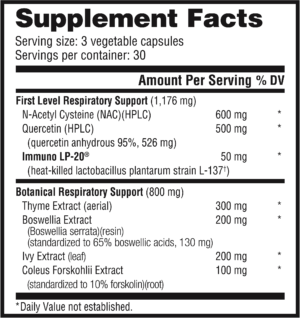
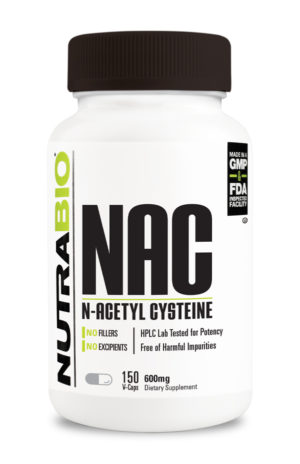
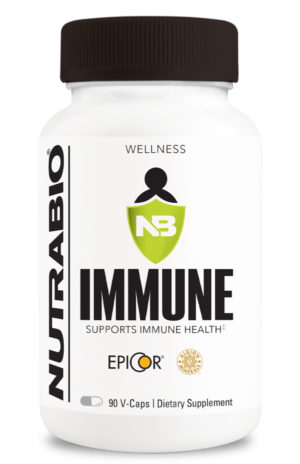
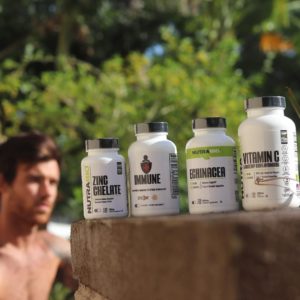
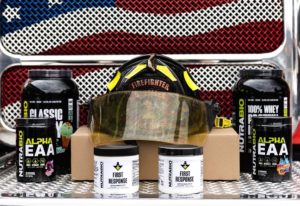
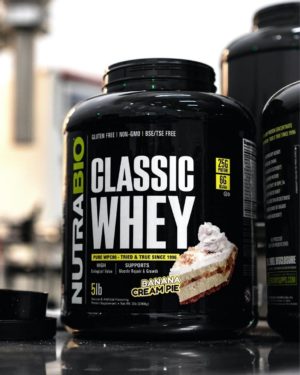

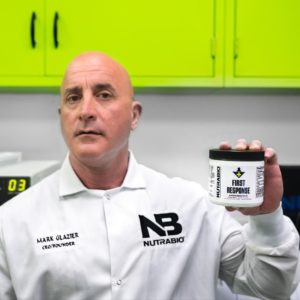
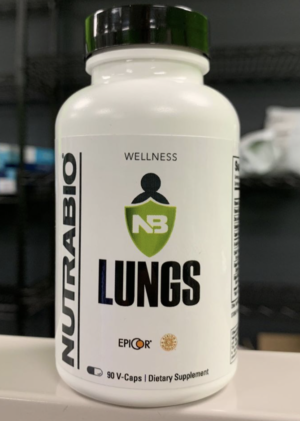
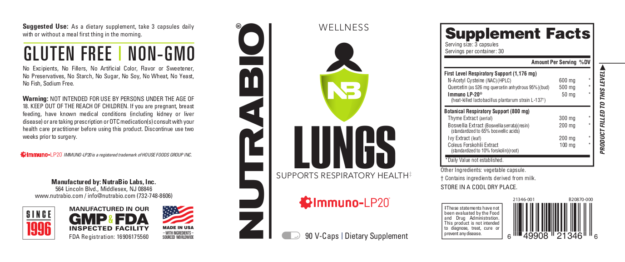


Comments and Discussion (Powered by the PricePlow Forum)